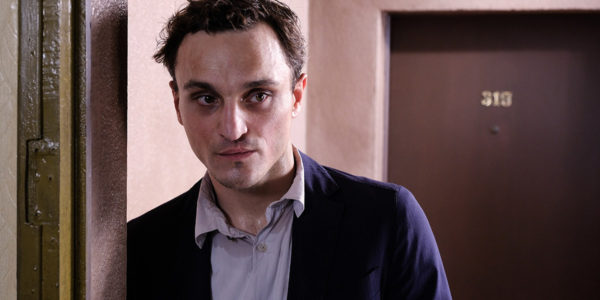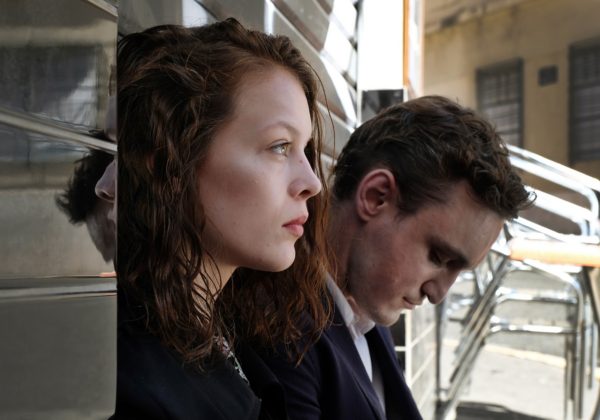Christian Petzold’s newest film, Transit, which opens at Toronto’s TIFF Bell Lightbox on November 9, is a meditation about exile, rootlessness and trauma.
Petzold bends time itself to rework Anna Seghers’ 1944 novel about a German refugee in Paris who assumes another man’s identity to save himself from fascist barbarians marching toward the city. This exceedingly somber and unsettling movie is set in the 21st century, but it implicitly harkens back to Nazi Germany’s 1940 invasion of France.
The film’s November 9 opening date is significant, marking as it does the 80th anniversary of Kristallnacht, the nation-wide pogrom that erupted in Germany and temporarily spelled finis to its Jewish community.

Georg (Franz Rogowski), a self-effacing German radio and television technician, has settled in Paris to escape the wrath of the Nazis. As he sits in a bar, a fellow German expatriate asks him whether he can deliver two letters from a writer named Weidel. He agrees, setting off a chain of events that lead Georg to Marseille, where vulnerable refugees like himself line up at foreign consulates to plead for life-saving transit visas.
Georg has no such problem. Masquerading as Weidel — a communist who arranged for a Mexican visa before he committed suicide — Georg knows that a visa awaits him at Mexico’s consulate.
As he bides his time in Marseille, he befriends a deaf mute woman and her son, an eight-year-old boy who shares his a passion for soccer. Georg also runs into Weidel’s wife, Marie (Paula Beer), with whom he falls in love.

The totalitarian terror that descends on France is foreshadowed several times in Transit, which unfolds in French and German.
A screaming woman in an apartment building is dragged away by police. A physician desperately looks for a way out. A woman jumps to her death from a terrace. Refugees form a long queue at the U.S. consulate. Concentration camps are full, and deportations — an indirect reference to Jews being sent to their deaths — have begun. Avignon is occupied. Roundups are taking place. Georg talks about trekking through the Pyrenees, the rugged mountain range through which some Jewish refugees fled to safety in Spain. A passenger ship has been sunk by enemy submarines.
In keeping with its subject matter, the film is depressingly grim. The mood is sustained by an ensemble of fine actors. Rogowski, in particular, stands out. He conveys the sense of hopelessness that engulfed people like Georg during these terrible times.